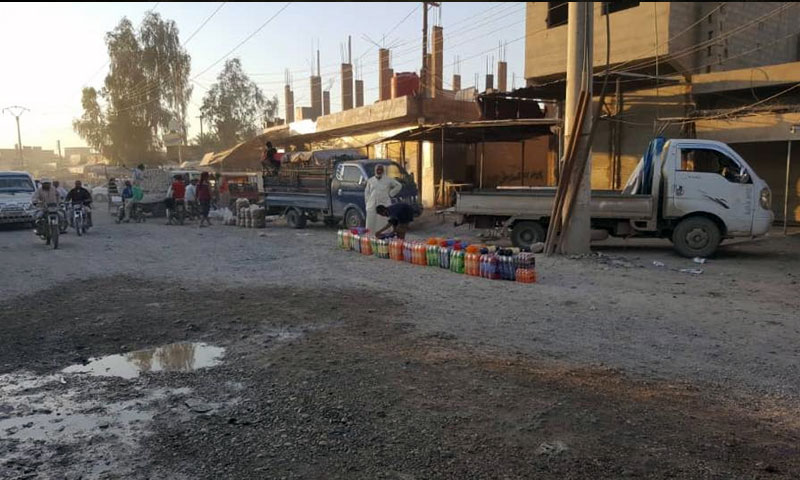



Deir ez-Zor, a city of almost utter destruction and empty neighborhoods in eastern Syria, lives the month of Ramdan, while its people attempt to preserve what has been left of its rituals, despite the deteriorating service-related conditions, especially water and electricity.
Khalil Mohammad from Harabesh neighborhood, 51 years old, told Enab Baladi that “the situation is yet bad, despite the relative development and the partial return of water, electricity and the help of some people. However, the situation has not changed a lot.”
Khalil, called Abu Ibrahim, stressed that the people’s needs are a lot more than the simple reforms they are offered, believing that “all the promises that were given to people and employees to convince them return to the city, were mere words without real actions.”
In the past a few years, Ramadan’s rituals lacked in the city as a result to the destructive war between the different sides to the conflict, especially that between the “Islamic State” and the Syrian regime which seized the whole city in early November 2017, after which it announced the gradual activation of services and institutions.
The city streets, however, have witnessed the revival of some of Ramadan’s rituals, as Latifah (54 years old) has told Enab Baladi, who stressed that the hot weather did not prevent people from practicing some of Ramadan’s habits, such as the neighbors meeting at the doors, to chat and exchange news about relatives and friends who are spread in different places, in addition to Tarawih prayers, and the Musahrati and his small drum at dawn.
Latifah is sorry for her city’s current situation, for it has changed into ruble housed by fear, after its people’s departure; she describes the state of terror which the people are still living, saying that “the people go to the mosque for the al-Fajr and Tarawih prayers with very little talking to do; they say a few words only that include greetings, checking on relatives, the difficulties of fasting and the high temperature for fear of the regime’s informers and spays, who are all ears,” pointing out that “people are, despite the difficulties, trying to live with the very little they have to get their life back.”
Ramadan, its rituals and atmosphere’s return were disturbed by the craziness of the prices and the people’s weakened purchase ability, as the salaries which the government’s employees get suffices for a week only, according to Latifah, who wondered, how can they get money?
She pointed out that most of the cities’ employees are forced to divide their salaries into extravagant rents and the other life needs. They abstain from buying due to the rising prices in a city where an ice bar costs 1800 Syrian pounds.
Despite the rising prices, the economic movement in the market has became a little bit better, according to Ahmad, a 16 years old merchant, who has a trolley for selling liquorice and tamarind. Sometimes, along with his nine years old brother, Ahmad sells vegetables to make a living for his patient father, mother and his four siblings.
According to Ahmad, the influx of worshipers into the mosques of the city has created new centers for sellers to trade, and the rates of sale and purchase in the market have increased compared to the previous months, as “Ramadan comes and with it the needed livelihood,” refusing that the sellers are to blame for the rising prices, “we make a little of it despite our fatigue throughout the day. ”
The sight of life returning to the streets of the city may seem strange, especially to children who have grown up in war and siege, for seeing the mobile vendors and hearing the voices of tamarind and other types of juice’ vendors, constitute an “unconventional” scene for them.
if you think the article contain wrong information or you have additional details Send Correction